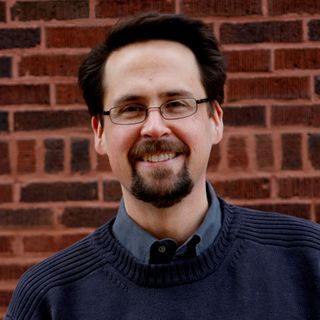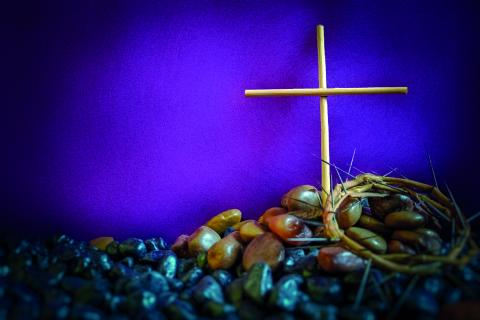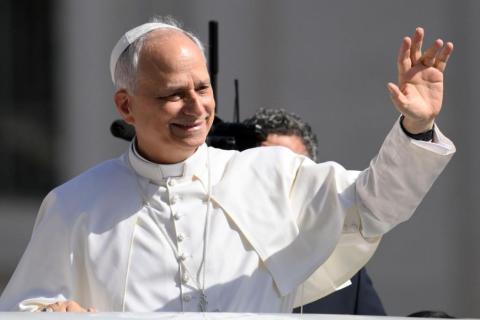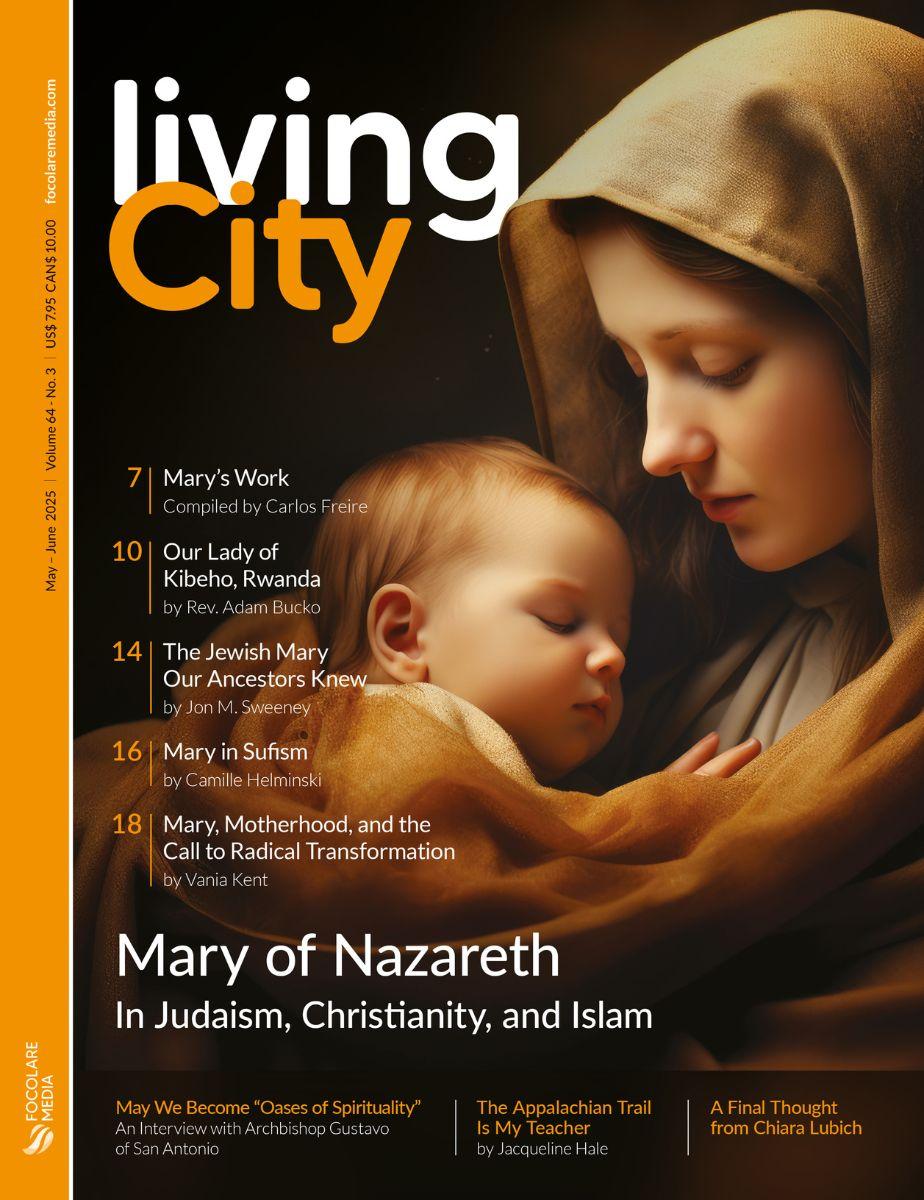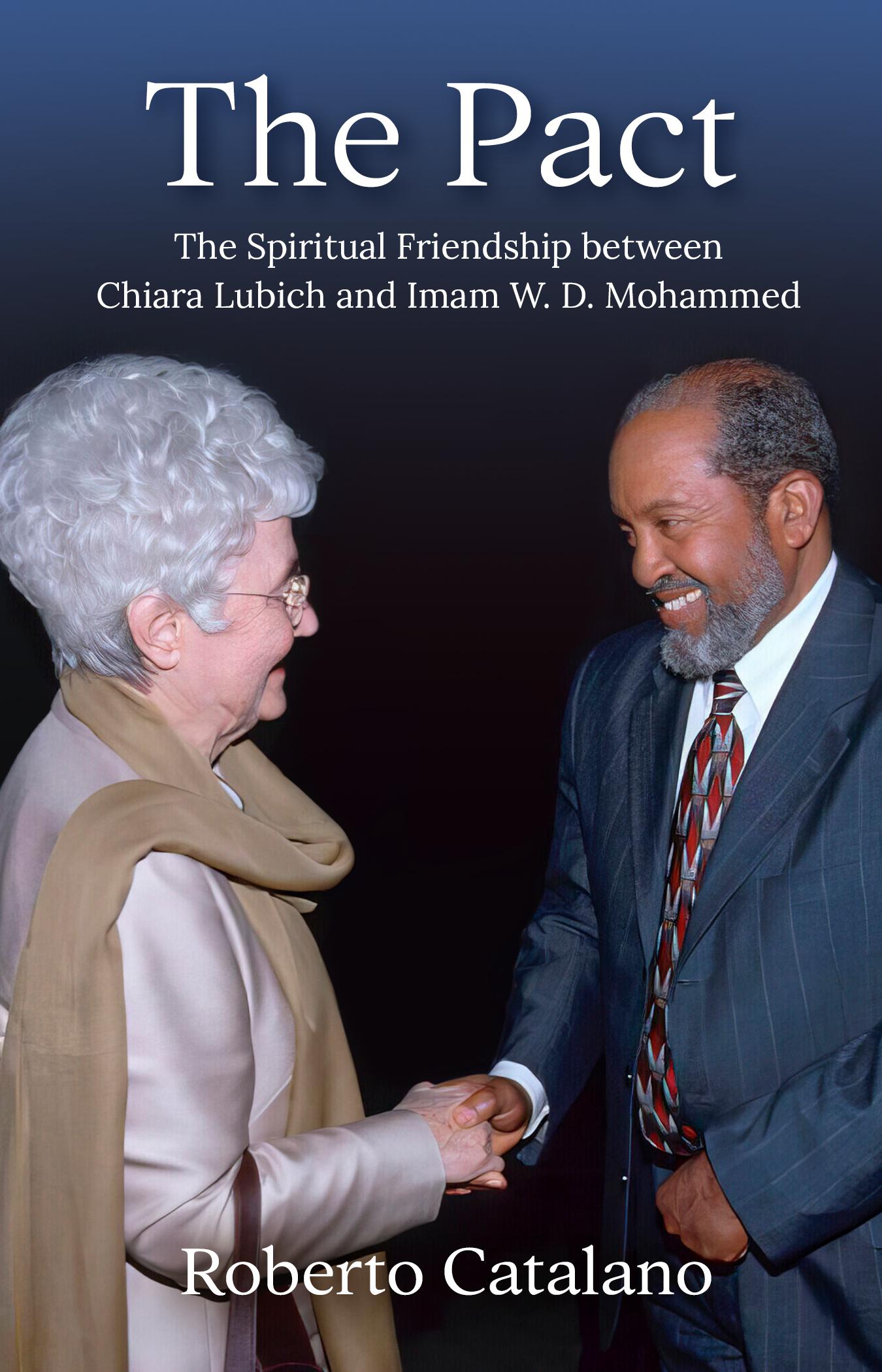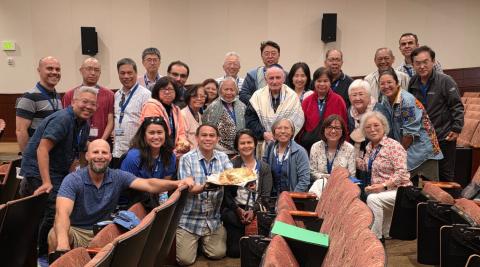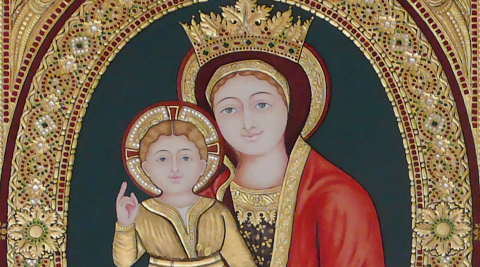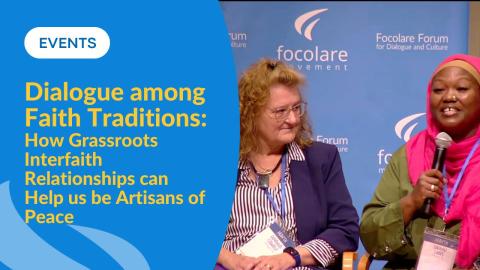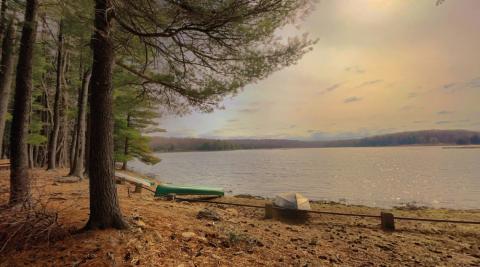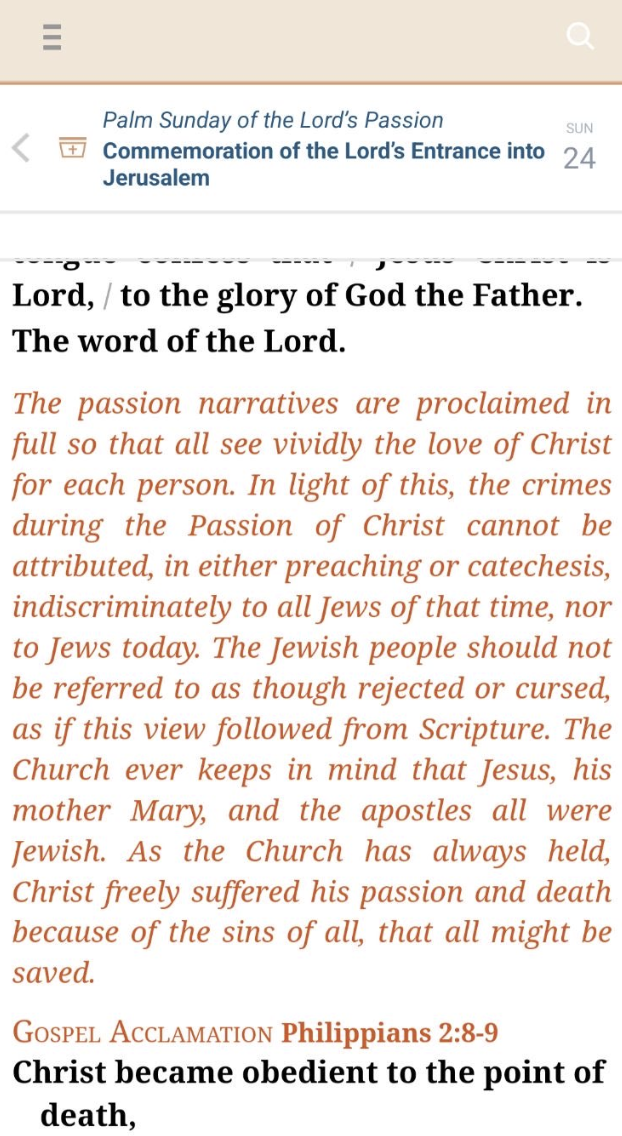
Last year, on February 1, 2023, the Committee on Ecumenical and Interreligious Affairs, together with the Committee on Divine Worship, of the United States Conference of Catholic Bishops (USCCB) mailed a memo to every publisher of Roman Catholic worship aids, hymnals, and missals informing them of a new requirement:
“…that all participation aids for worship publish the following notice (in English, Spanish, or both, depending on the nature of your publication) prior to the printing of the text of the passion narrative on Good Friday:
The passion narratives are proclaimed in full so that all see vividly the love of Christ for each person. In light of this, the crimes during the Passion of Christ cannot be attributed, in either preaching or catechesis, indiscriminately to all Jews of that time, nor to Jews today. The Jewish people should not be referred to as though rejected or cursed, as if this view followed from Scripture. The Church ever keeps in mind that Jesus, his mother Mary, and the apostles all were Jewish. As the Church has always held, Christ freely suffered his passion and death because of the sins of all, that all might be saved.”
The notice went on to say, “this requirement will go into effect in 2024.”
I am happy to report that it seems to have taken place, as evidenced by the photo accompanying this article, taken from a Palm Sunday worship aid. Please look to the worship aids, bulletins, and missalettes at your services this week, for the same.
Thank you, bishops, for your leadership. Holy Week, and especially Good Friday, have historically been times when pogroms, cemetery desecrations, harrassments, and violence of all kinds against Jews have taken place, often at the hands of Catholics feeling they are somehow being faithful to the teaching of their Church or their Savior. Or, latent antisemitic attitudes were “activated” when their Church did not teach them otherwise.
We have been long overdue for this official statement from our Church leadership in the U.S., explaining the teaching of the Church that has been made clear at least since the promulgation of Nostra Aetate, one of the essential documents of the Second Vatican Council, some sixty years ago. Pope John Paul II was the first pontiff to visit a synagogue, in April of 1986, in Rome, and on that occasion said to the Jewish people, “You are our elder brothers.”


